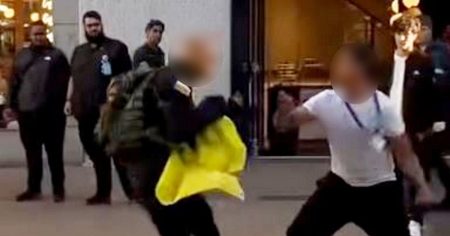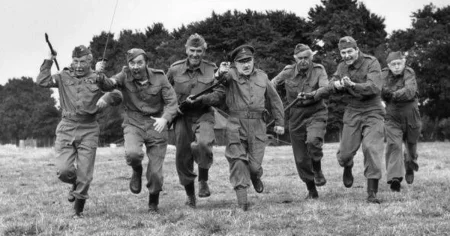Ahmed Alid, a Moroccan asylum seeker, is on trial for the murder of 70-year-old Terrence Carney in Hartlepool, after allegedly stabbing him while he was out for a morning walk. Alid is also accused of attacking his housemate, Javed Nouri, who survived the assault. The attack on Mr. Carney was captured on CCTV, with him being stabbed multiple times before collapsing on the street. Alid believed that Mr. Nouri, who had converted to Christianity, deserved to die as an apostate. Alid allegedly mentioned the conflict in Gaza as a motivation for the attacks, expressing anti-Israel sentiments.
The court heard that Alid had been paying special attention to news reports of violence between Hamas and Israel leading up to the attacks. Alid described his actions as a response to the conflict in Gaza, stating that killing two adults was preferable to war. He also expressed a desire for the “brutal Israeli colonizer” to leave Palestine. Alid admitted to stabbing Mr. Carney and his housemate with a knife with the intention of killing them. The prosecution detailed Alid’s anti-Israel and pro-Palestine views as motivations for the attacks, which resulted in the death of Mr. Carney and injuries to his housemate.
The prosecution presented evidence of Alid’s extremist views, highlighting his belief that Mr. Nouri’s conversion to Christianity warranted his death as an apostate. Alid’s threats and actions towards his housemates, including carrying a knife and attempting to harm them, showed a pattern of violent behavior prior to the fatal attack on Mr. Carney. Alid’s anti-Israel sentiments and desire to take more lives if he had better weapons were used to emphasize his dangerous ideology. The CCTV footage of the attack on Mr. Carney revealed the brutal and graphic nature of the incident, showing the pensioner being chased down and fatally stabbed by Alid in a public street.
During his arrest, Alid made statements linking his actions to the conflict in Gaza and expressing regret that he had not been able to cause more harm. He mentioned his readiness for martyrdom, indicating a willingness to die for his beliefs. Alid’s actions and statements to the police revealed a deep-seated radicalism and extremism, with clear intentions to cause harm and death to those he viewed as enemies. The court also heard about his aggressive behavior towards the police during his arrest, showcasing his violent tendencies and lack of remorse for his actions. The trial continued with further evidence and testimonies regarding Alid’s state of mind and motivations for the attacks, shedding light on a disturbing ideology that led to the tragic death of an innocent man.














